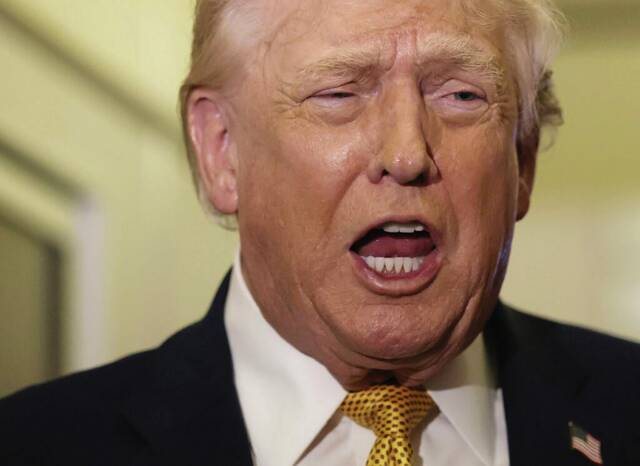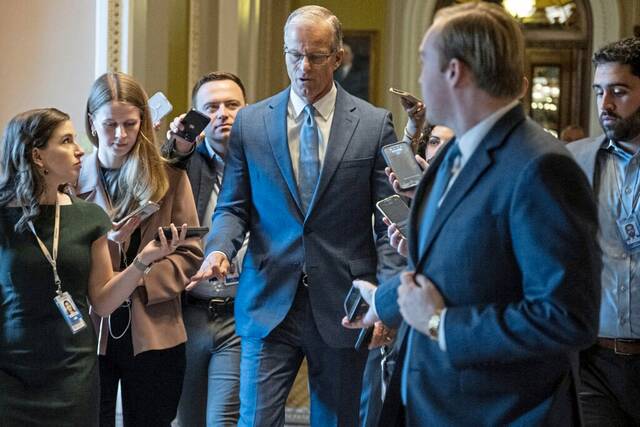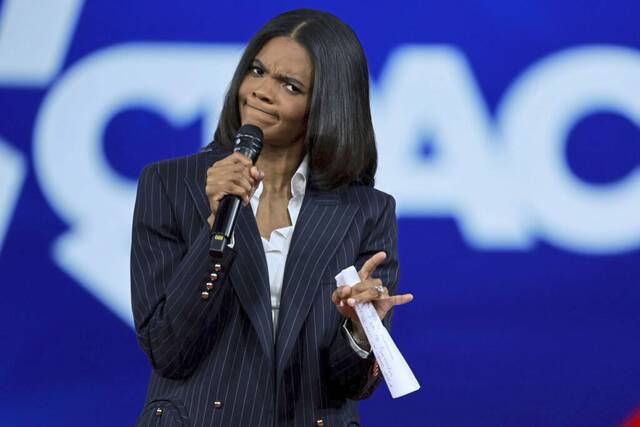There’s bad news and good news for those who want to see Joe Biden win in 2024 (or who really just want to see Donald Trump lose).
The bad news is that, in the era of modern polling, no president has ever won reelection with approval ratings as low at this point in their first term. For fairly obvious reasons, incumbent presidents generally need to get at least close to 50% favorability by election day to win. Biden’s approval has been stubbornly low — around 40% in polling averages — despite an improving economy. Getting to 50% looks daunting, though hardly impossible.
The good news is approval numbers might not matter.
You might have noticed a lot of the old rules of politics have passed their expiration dates. It’s important to note none of them ever were “iron laws” so much as rules of thumb. Still, it’s been a bad time to rely on those rules of thumb.
The truism, “As goes Ohio, so goes the nation” — i.e., Ohio always backs the winner — didn’t apply in 2020. The still widespread conviction that politics is all about raising money, and that donors have outsize influence to pick the winner, hasn’t really been true for quite a while. Just ask Michael Bloomberg or Ron DeSantis. From 1888 to 1996, the Electoral College vote followed the popular vote. In 2000 and again in 2016, that didn’t happen.
For decades, winning presidential and congressional candidates followed the rule that you swing to the base in the primaries and then tack back to the center in the general election. Barack Obama largely ignored that rule, and Donald Trump really ignored it, successfully. Most senatorial and congressional candidates ignore that rule entirely. That’s because the electorate has sorted to the point where the real challenge to incumbency is in primaries, not general elections. As a result, candidates increasingly rely on turning out their base rather than persuading voters in the middle.
This points to one reason why approval ratings might not matter as much as they used to. In a polarized electorate, most voters vote against the other party more than they vote for their own. A recent Quinnipiac poll finds, among voters who dislike both candidates, Biden has a commanding 13-point lead. If that holds, it could be all Biden needs.
A second reason why approval ratings might be unreliable: Trump is essentially running as a Republican incumbent. Normally, presidents who lose don’t run again. And they certainly don’t claim they didn’t actually lose.
Presidential approval ratings have tended to be predictive because a reelection bid is a referendum on an incumbent’s first term: Do voters want more of the same or change? But voters already know what a Trump presidency would be like — or they can be reminded with a barrage of negative ads the likes of which we’ve never seen. Trump left office with an approval rating of 34%. This is why Nikki Haley tends to do better than Trump in hypothetical match-ups with Biden: She’s a change candidate in a way Trump can’t be.
It’s true Trump is beating Biden in many hypothetical matchups in battleground states. That should worry Democrats and anyone else who doesn’t want Trump in the White House. But Trump’s unfavorable ratings still are higher than Biden’s. Indeed, Trump always has had a high floor of support — about 34% — but also a very low ceiling, about 48%. Unlike Biden, Trump never has actually been popular.
In a general election, when partisans reluctantly “come home,” basically to vote against the other party, Biden probably has a much larger pool of “hold your nose” voters to rely on.







